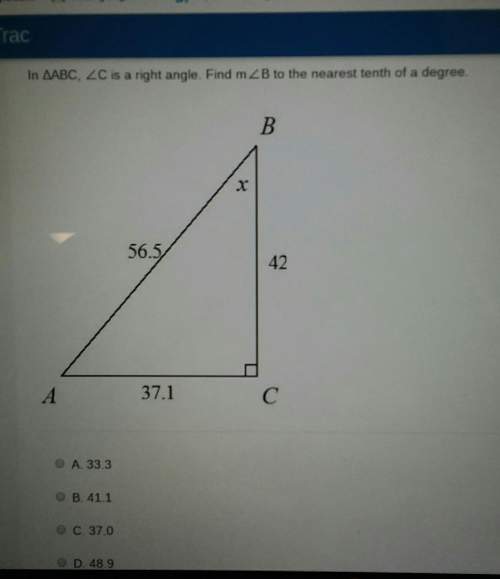
Mathematics, 27.10.2020 05:40 julianrod1201
An ordinary annuity pays 6.84% compounded monthly.
(A) A person deposits $100 monthly for 30 years and then makes equal monthly withdrawals for the next 15 years, reducing the balance to zero. What are the monthly withdrawals? How much interest is earned during the entire 45-year process?
(B) If the person wants to make withdrawals of 2,000 per month for the last 15 years, how much must be deposited monthly for the first 30 years?
(A) The monthly withdrawals are $
nothing
(Round to the nearest cent as needed.)
The interest earned during the entire 45-year process is $
nothing
(Round to the nearest cent as needed.)
(B ) _$ must be deposited monthly for the first 30 years.
(Round to the nearest cent as needed.)

Answers: 2


Another question on Mathematics

Mathematics, 21.06.2019 12:40
Question 13 of 451 pointwhich statement correctly describes the inverse of the following function? a. it is negative.b. it is a horizontal shift.c. it is not a function.d. it is a function. give an explanation as to why you chose that answer. (i think its either a or d.)
Answers: 1

Mathematics, 21.06.2019 14:00
What is the slope of a line that is perpendicular to y = 3x + 1
Answers: 1

Mathematics, 21.06.2019 14:30
Which interval for the graphed function contains the local maximum? [–3, –2] [–2, 0] [0, 2] [2, 4]
Answers: 2

Mathematics, 21.06.2019 14:50
Name the most appropriate metric unit for each measurement like a length of an carrot
Answers: 2
You know the right answer?
An ordinary annuity pays 6.84% compounded monthly.
(A) A person deposits $100 monthly for 30 years...
Questions

Social Studies, 22.03.2021 18:00

Biology, 22.03.2021 18:00


English, 22.03.2021 18:00




Computers and Technology, 22.03.2021 18:00







Mathematics, 22.03.2021 18:00


Computers and Technology, 22.03.2021 18:00

Biology, 22.03.2021 18:00

Mathematics, 22.03.2021 18:00




